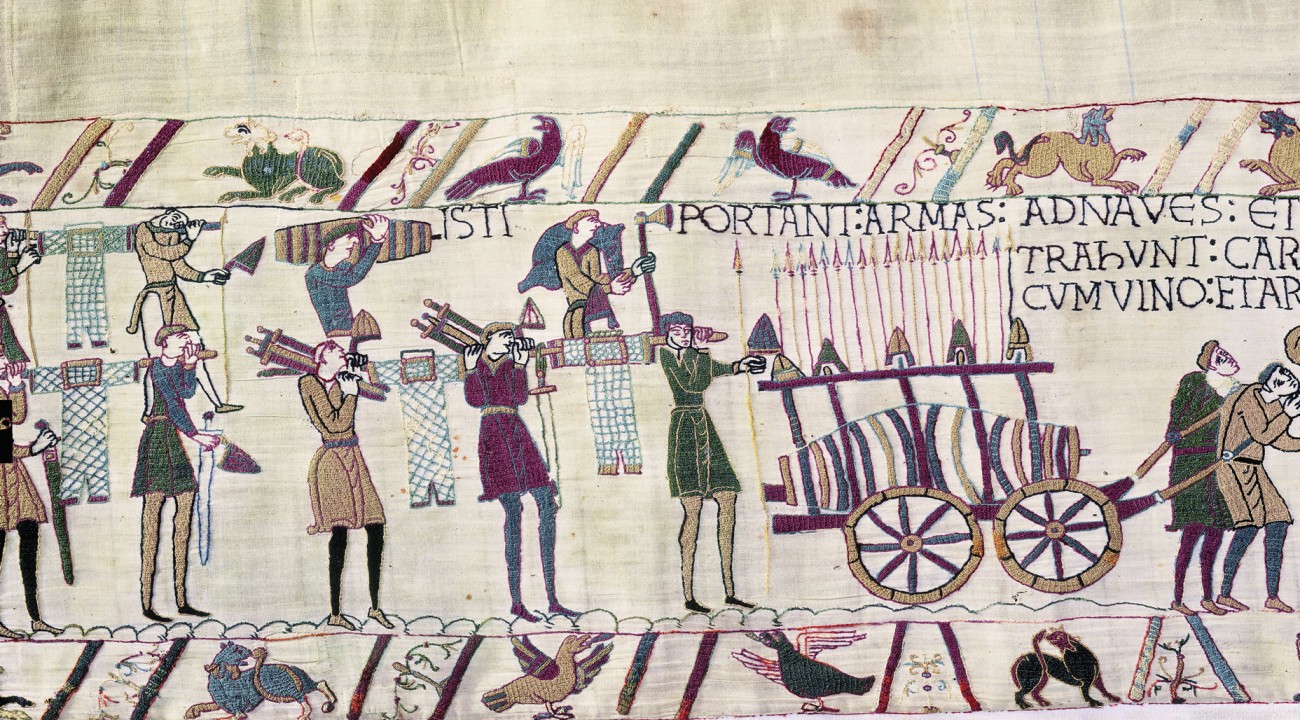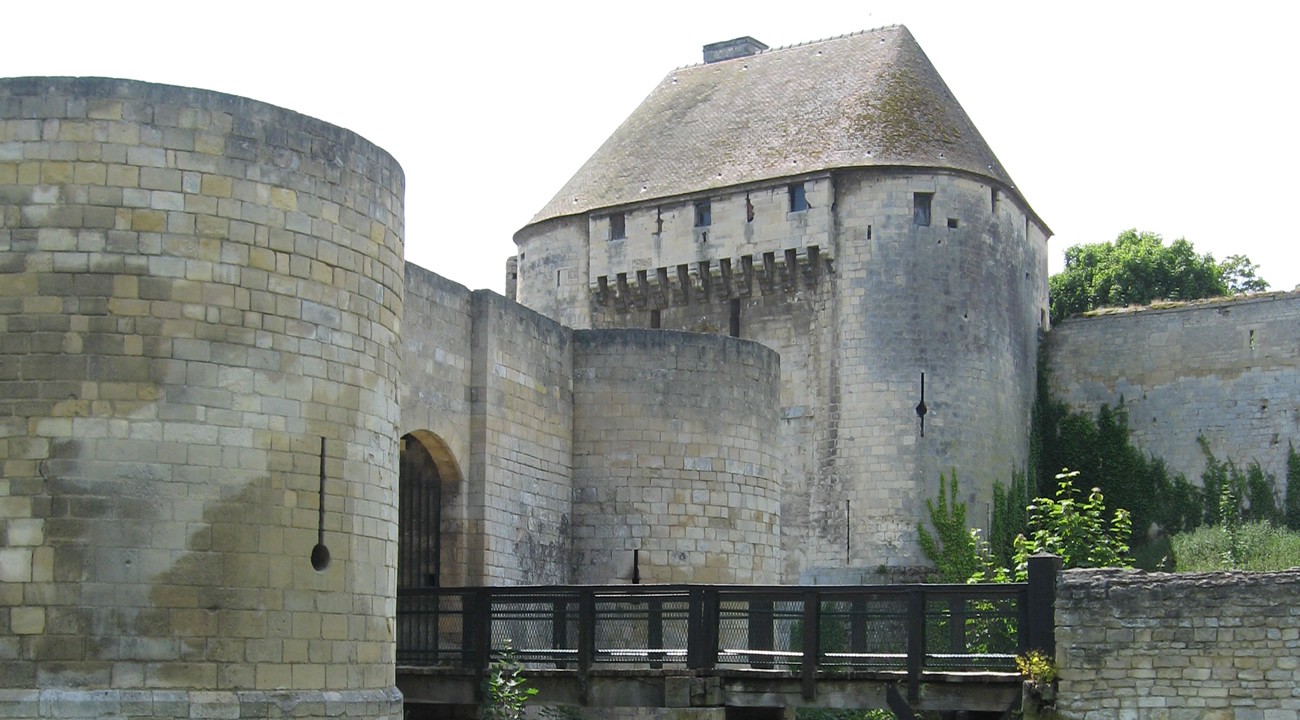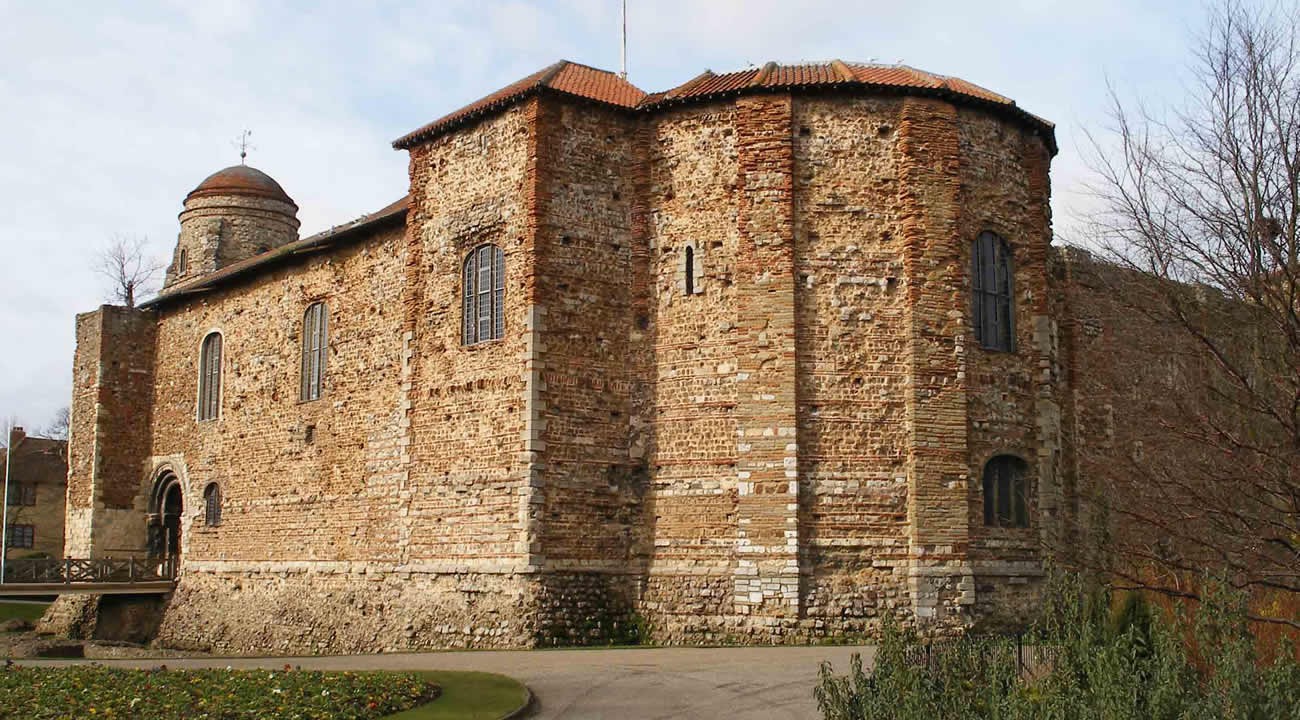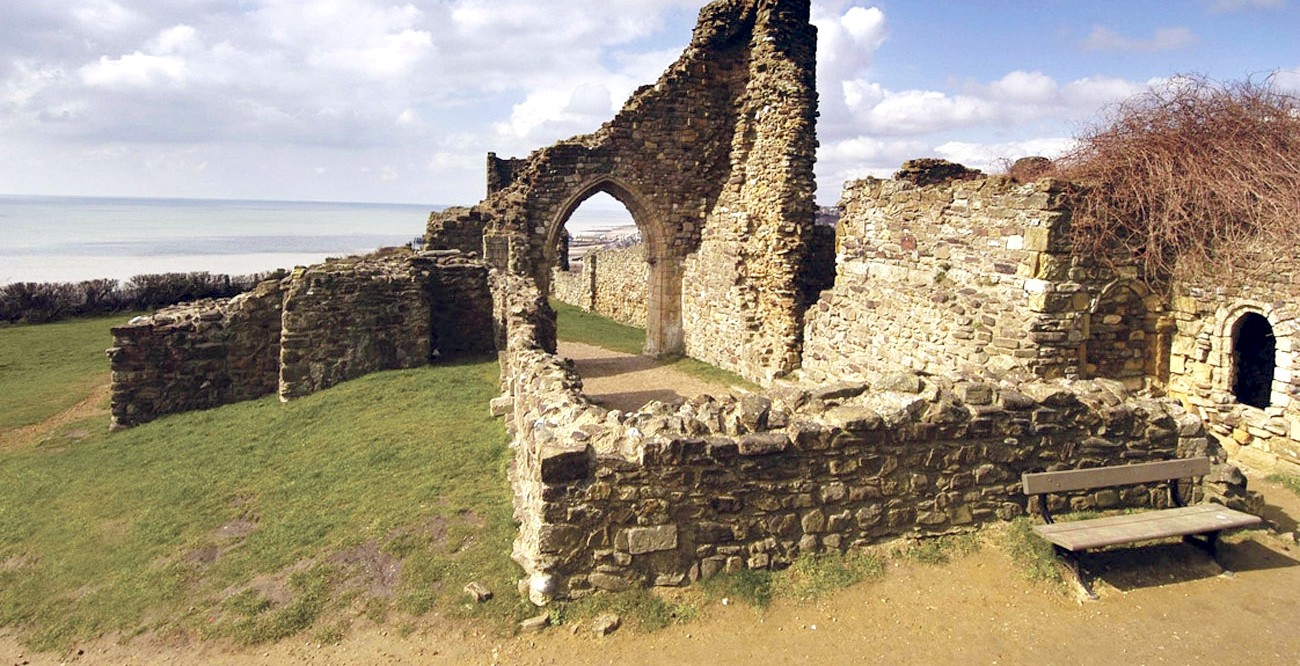William of Jumièges is one of the most famous chroniclers of Normandy and he produced his work on the living, including William the Conqueror. We know very little of his life. This monk from Jumièges was nick-named Calculus ("stone" in Latin) and it was in 1071-1072 that he finished his long writings on the "Exploits of the Dukes of Normandy" ("Gesta Normannorum Ducum"). He reworks the historical writings of his predecessors which he develops, completes and continues to create an original work. Writing in the service of the court he sings great praises for the line of the Dukes of Normandy which he traces as far back as the Trojans in order to enhance their prestige. He describes the remarkable ascension of the dukes by the intervention of God, who rewards their virtues and their courage by his direct intervention. In this connection the coronation of William the Conqueror as king of England is the natural expression of this ascension, begun several generations earlier. Even if the objective of this long narrative is to legitimise the dukes' line, William of Jumièges produces a real historical work, notably mentioning matters unfavourable to the princes of Normandy and particularly to William himself as his contemporary. Contrary to William of Poitiers, another famous chronicler of the time William "Caillou" (Pebble) has no part in the ducal entourage but the precision, compilation and composition of his work brought great success in the Middle Ages and the chroniclers who succeeded him leaned heavily towards his œuvre.









William of Jumièges
European Regional Development Fund
The European Union, investing in your future
 Fonds Européen De Développement Régional
Fonds Européen De Développement Régional
L’Union Européenne investit dans votre avenir
The European Union, investing in your future

 Fonds Européen De Développement Régional
Fonds Européen De Développement RégionalL’Union Européenne investit dans votre avenir
The Norman Connections project was selected under the European Cross-border Cooperation Programme
INTERREG IV A France (Channel) – England, co-funded by the ERDF.
INTERREG IV A France (Channel) – England, co-funded by the ERDF.


 Email a friend
Email a friend  Print this page
Print this page 